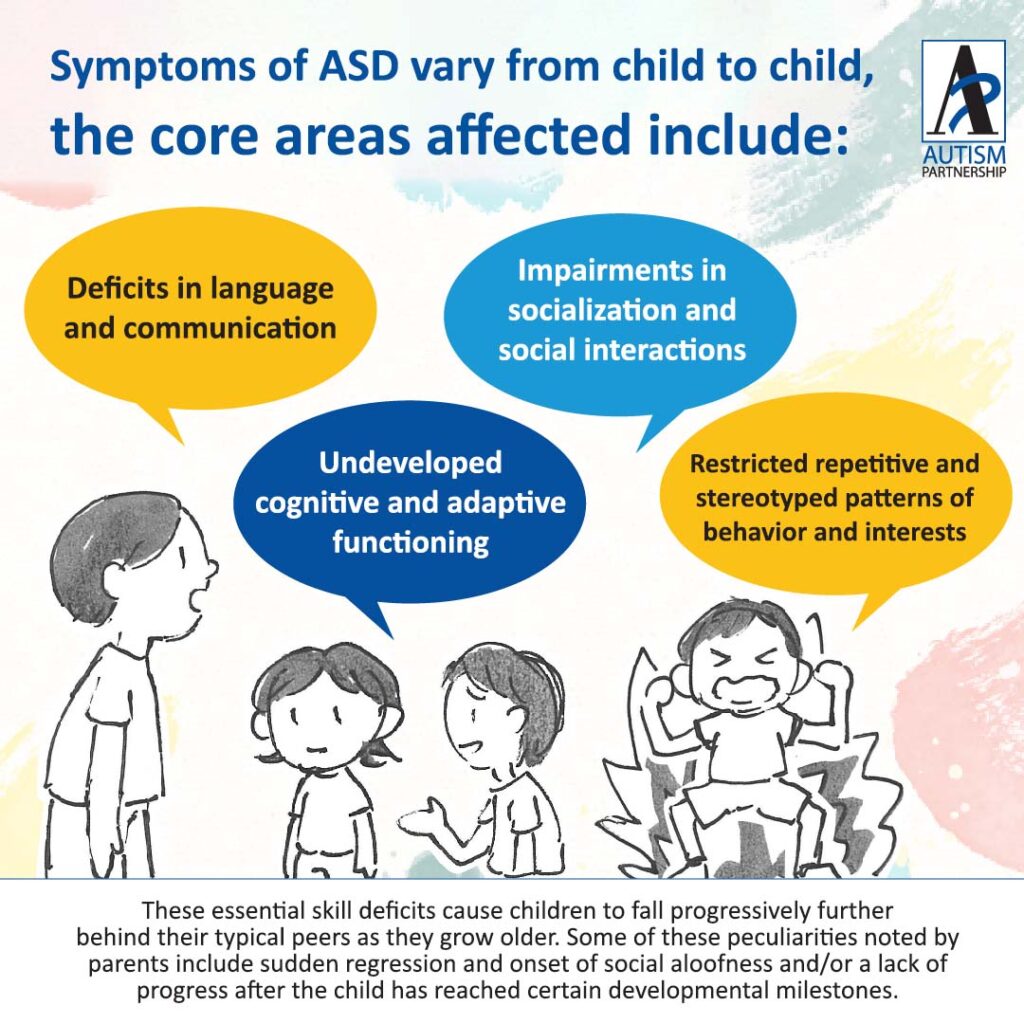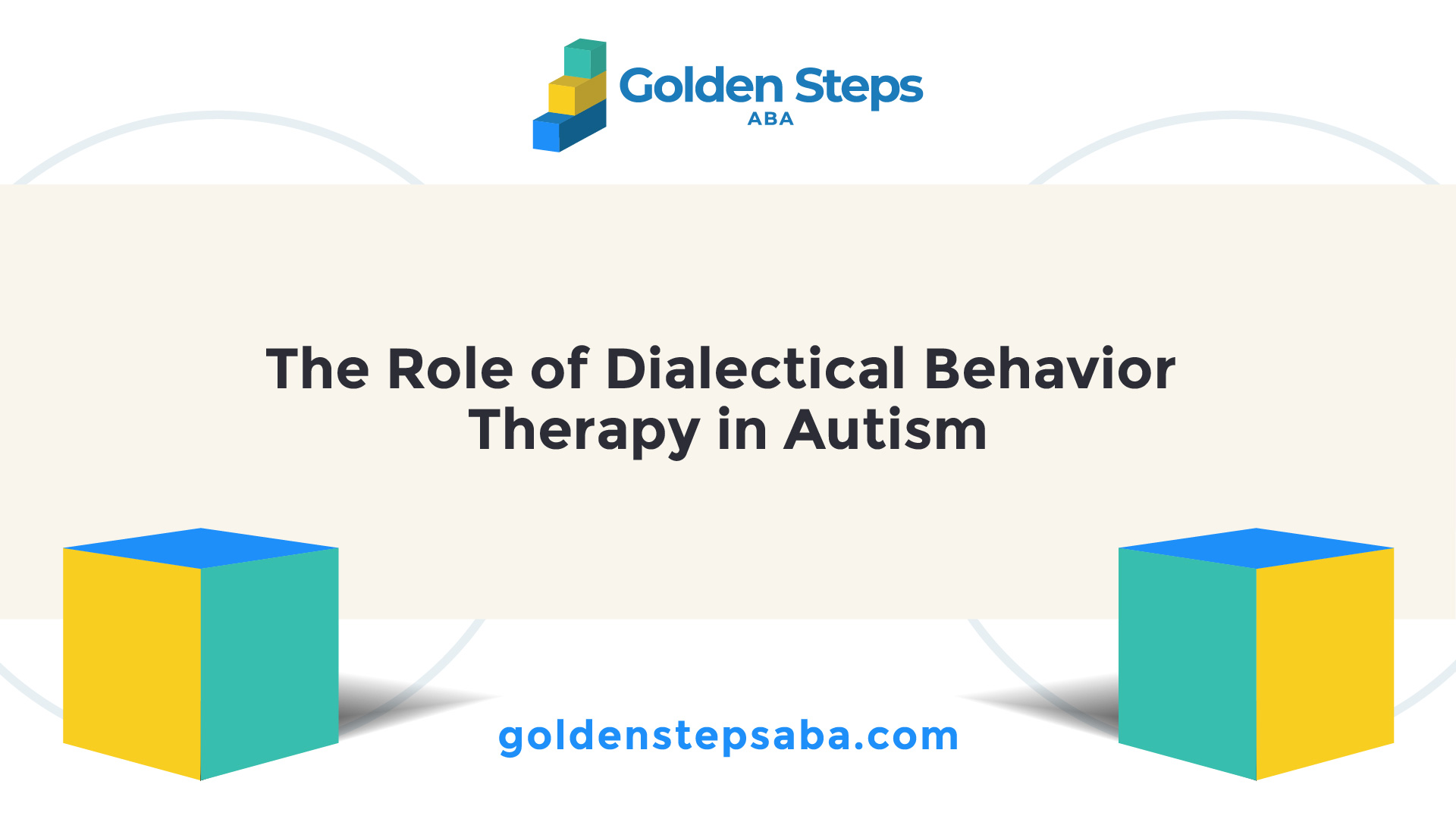When you should consider your family needs Autism Behavioral Therapy
When you should consider your family needs Autism Behavioral Therapy
Blog Article
Comprehending the Impact of Behavioral Autism on Day-to-day Live and Social Communications
You might not realize exactly how deeply behavior autism affects life and social interactions. People on the spectrum frequently navigate a globe loaded with interaction hurdles and sensory overload. These challenges can lead to irritation and seclusion, influencing their partnerships and total health. Recognizing these subtleties is crucial for fostering supportive settings. What techniques can we execute to develop more purposeful connections and inclusive spaces? The answers could stun you.
Specifying Behavior Autism and Its Attributes
Behavioral autism, commonly described as autism spectrum problem (ASD), includes a variety of conditions identified by obstacles in social communication, interaction, and recurring habits. You might observe that individuals with ASD usually struggle to interpret social signs, which can bring about misconceptions in conversations. They may discover it difficult to develop eye contact or participate in tiny talk, making social situations really feel frustrating.
Interaction troubles can show up in numerous means, from postponed speech advancement to a choice for making use of less words. Repetitive actions, such as hand-flapping or rocking, can work as coping systems to handle stress and anxiety or sensory overload. These attributes can profoundly impact day-to-day live, making it vital for you to recognize and support those with ASD. By recognizing these qualities, you can foster a setting that promotes approval and encourages effective interaction, helping individuals with autism grow in their everyday communications.
The Range of Autism: Comprehending Irregularity in Actions
Autism range condition (ASD) isn't a one-size-fits-all medical diagnosis; it differs widely among people. You might run into individuals that are very verbal and engage easily in conversations, while others could choose solitary tasks or communicate non-verbally.
Furthermore, the method individuals with ASD reply to sensory input can differ significantly; some could be overwhelmed by loud sounds or brilliant lights, whereas others grow in promoting atmospheres. The spectrum also includes distinctions in social interactions; some people might struggle to translate social signs, while others navigate social settings with relative convenience. Understanding this variability is important, as it assists you value each individual's special experience and tailor support to their details demands, fostering an extra comprehensive atmosphere for everyone.
Interaction Challenges Encountered by Individuals With Autism
When you connect with people on the autism range, you may observe their distinct interaction obstacles. They frequently encounter difficulties with both spoken and nonverbal signs, which can impact their social interactions. Comprehending these barriers is essential for cultivating far better connections and assistance.

Verbal Communication Problems
Several individuals on the autism range experience verbal interaction troubles that can significantly influence their daily interactions. Your tone, quantity, or rate may not line up with social assumptions, causing others to misinterpret your objectives. Identifying these difficulties can aid you and your assistance network create techniques to boost interaction and promote far better connections with others in your day-to-day life.
Nonverbal Interaction Barriers
Spoken communication isn't the only difficulty people on the autism spectrum face; nonverbal communication obstacles can be just as considerable. These difficulties can lead to misconceptions or false impressions of social cues, making communications really feel complicated or frustrating. By addressing nonverbal communication, you can discover techniques to boost your social experiences and boost your overall high quality of life.
Social Interaction Impacts
Social interactions can usually really feel frustrating due to the distinct interaction challenges faced by individuals with autism. Acknowledging these obstacles can aid you discover methods to improve communication, such as practicing social abilities in risk-free setups or using aesthetic help. Comprehending your demands permits you to navigate social communications with greater self-confidence and ease.
Social Communication and Partnership Building in Autism
While structure partnerships can be challenging for individuals with autism, comprehending their special viewpoints and communication styles can promote meaningful links. You could discover that several individuals on the spectrum choose direct interaction and may deal with social cues or tiny talk. By being simple in your interactions, you can help produce an environment where they feel comfortable.
Make the effort to pay attention and observe how they express themselves. This understanding can lead you in guiding discussions better. Involving in shared passions can likewise work as a bridge to much deeper links. Whether it's a hobby, a favored program, or a shared interest, these typical strings can open up doors to friendship.
Day-to-day Live Routine: Browsing Obstacles and Approaches
Navigating day-to-day live routines can be especially testing for people with autism, particularly when unexpected adjustments occur. You could discover convenience in having a structured timetable, as it aids you anticipate what's next. When disturbances happen, it's regular to feel overloaded or distressed. To browse these obstacles, consider carrying out aesthetic schedules or lists. These tools can supply clarity and peace of mind.
Developing a routine that consists of sensory breaks can likewise be useful. This helps develop an understanding environment.
Finally, method mindfulness methods to handle anxiety and anxiety. Basic breathing workouts or grounding techniques can make a significant distinction. By including these approaches, you can improve your everyday routine and reduce interruptions, making life feel extra manageable.
Toughness and Abilities of Individuals on the Autism Range
Comprehending everyday life routines is just one element of the autism experience. Many people on the autism spectrum have amazing strengths and abilities that set them apart.
Additionally, your memory skills commonly shine, specifically in areas of interest. Autism Spectrum Therapies. This flair for keeping details can make you an important resource in fields like art, innovation, or science. You may additionally exhibit strong visual reasoning, enabling you to visualize complicated ideas and solve issues creatively
Furthermore, your distinct perspective on the globe can cultivate empathy and understanding in others, enhancing social communications. Embracing these toughness not just boosts your confidence however additionally helps others value the diverse abilities you bring to the table.
Producing Comprehensive Settings for Individuals With Autism
Creating comprehensive environments for people with autism starts with creating sensory-friendly areas that provide to their special needs. You can likewise foster possibilities for social interaction, assisting to develop links and relationships. By making these adjustments, you'll add to an extra welcoming environment for website every person.
Creating Sensory-Friendly Spaces
While designing sensory-friendly rooms, it's important to reflect on the unique requirements of individuals with autism. Incorporate silent zones where people can charge and pull back when overwhelmed. Consist of visual routines or clear signage to aid individuals navigate the area with confidence.
Advertising Social Communication Opportunities
Creating sensory-friendly rooms not just addresses individual comfort but likewise establishes the phase for significant social interactions among people with autism. Urge peer mentoring, matching people with autism with encouraging peers that can lead them with social situations. By carrying out these techniques, you can enhance social chances, assisting people with autism build relationships and enhance their social abilities in a risk-free, welcoming setting.

Frequently Asked Inquiries
Just How Can Friends Assistance A Person With Behavioral Autism?
You can support a close friend with behavior autism by being person, listening proactively, and valuing their limits. Take part in activities they appreciate, communicate openly, and produce a comfortable atmosphere where they really feel valued and understood.
What Resources Are Readily Available for Parents of Kid With Autism?
You can discover various resources for parents of kids with autism, consisting of support system, instructional internet sites, and neighborhood neighborhood solutions. Getting in touch with various other parents can additionally provide beneficial insights and shared experiences to help browse difficulties.
Can Behavioral Autism Modification Gradually?
Yes, behavioral autism can alter with time. You might discover shifts in communication, social abilities, and habits as your youngster grows. Early treatment and assistance often play essential functions in these developing modifications.
Just How Do Sensory Level Of Sensitivities Affect Daily Life?
Sensory sensitivities can make day-to-day experiences overwhelming. You may have problem with intense lights or loud noises, causing tension or evasion. Locating atmospheres that fit your demands can greatly boost your comfort and general life.
What Prevail Misconceptions Regarding Behavioral Autism?
You may believe behavioral autism only affects communication skills, however it's more complicated. Numerous think individuals lack empathy or intelligence, which isn't true. Recognizing these mistaken beliefs assists foster acceptance and assistance for those on the range.
Behavior autism, typically referred to as autism range condition (ASD), includes a range of conditions defined by obstacles in social communication, communication, and repeated habits.Social interactions can typically really feel frustrating due to the special interaction challenges dealt with by people with autism.Creating sensory-friendly spaces not only addresses specific convenience however additionally sets the stage for significant social interactions amongst people with autism. Urge peer mentoring, coupling individuals with autism with encouraging peers that can guide them through social situations. By carrying out these methods, you can enhance social chances, aiding individuals with autism build friendships and reinforce their social skills in a secure, welcoming environment.
Report this page